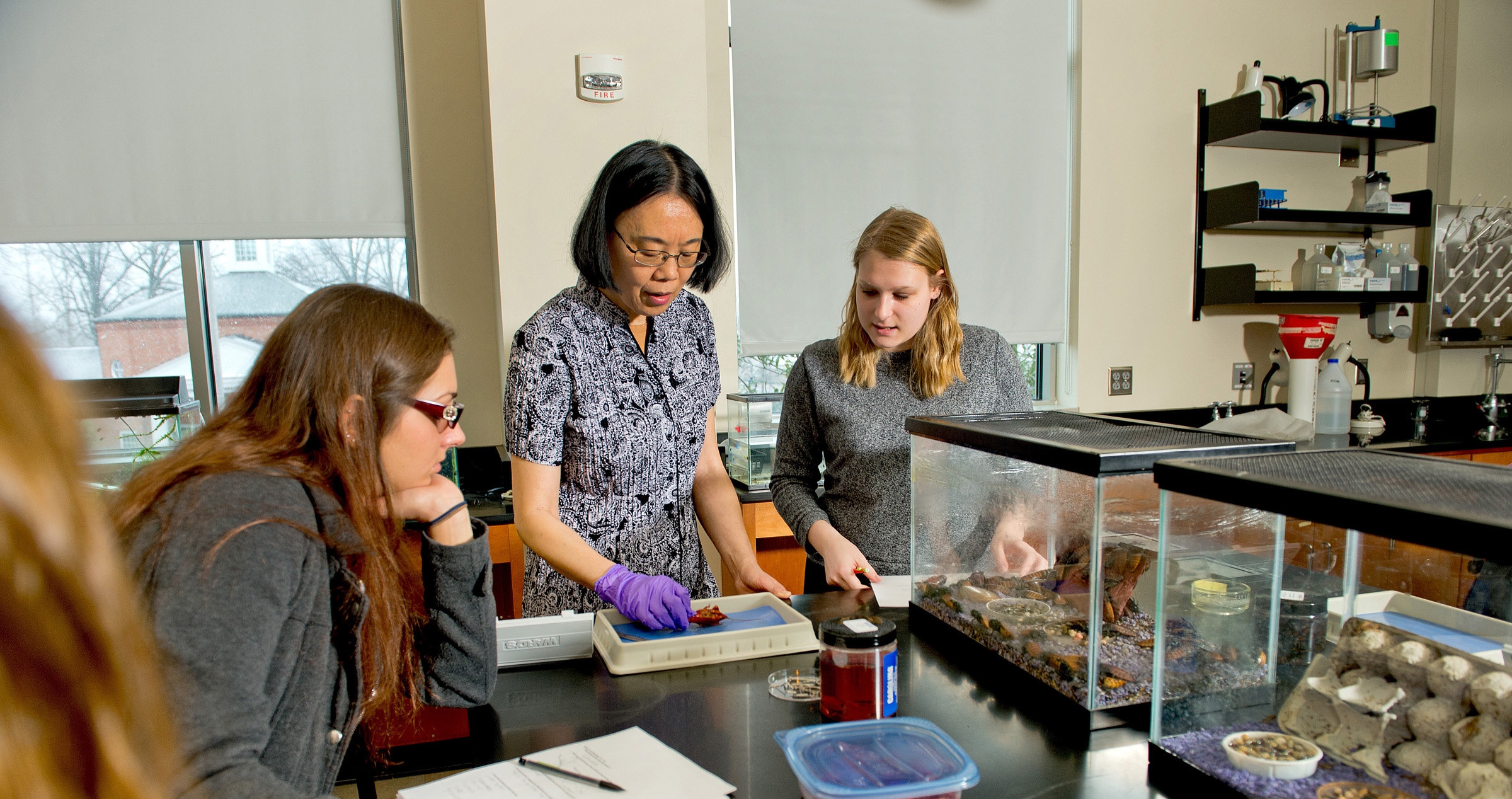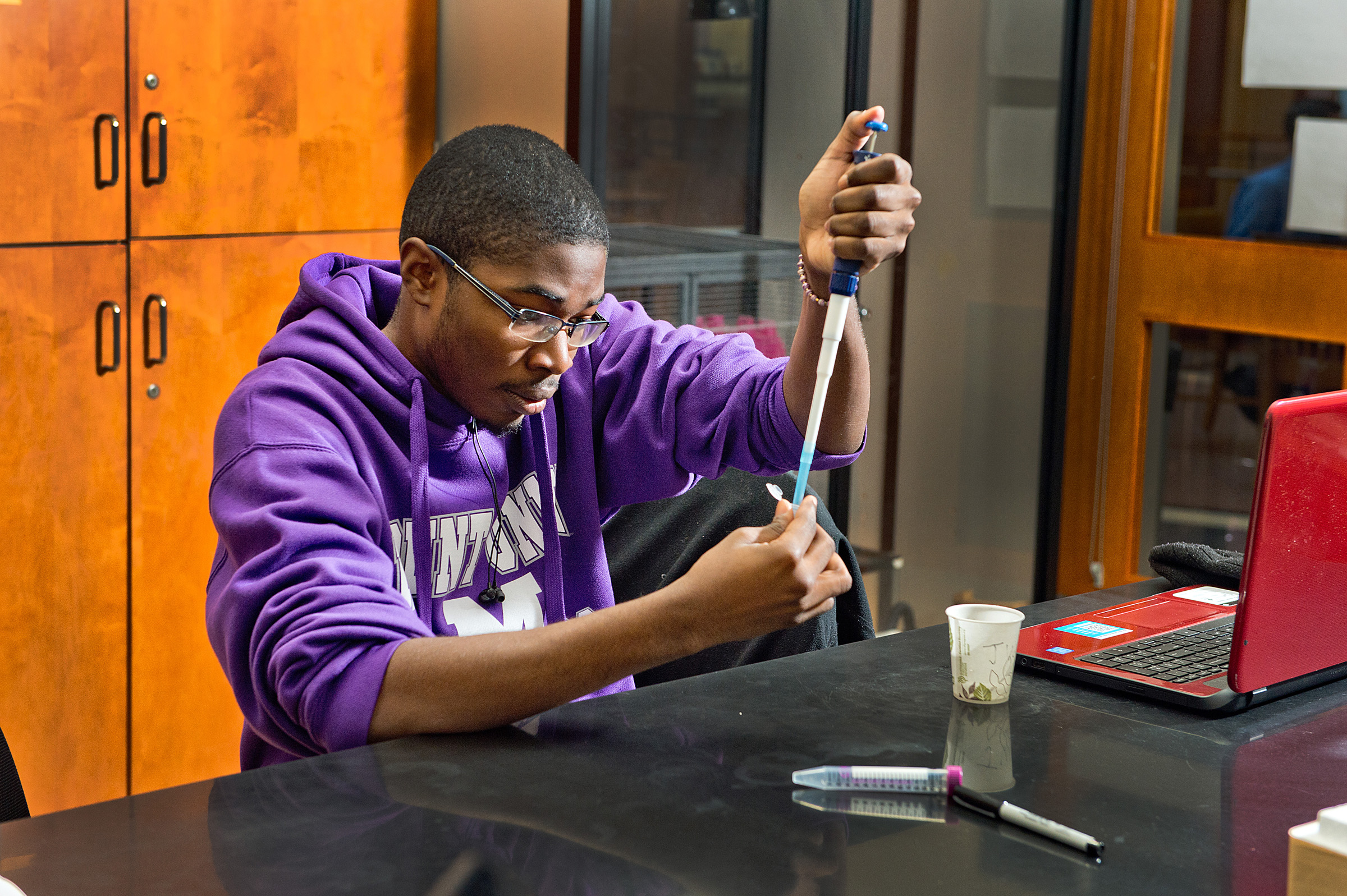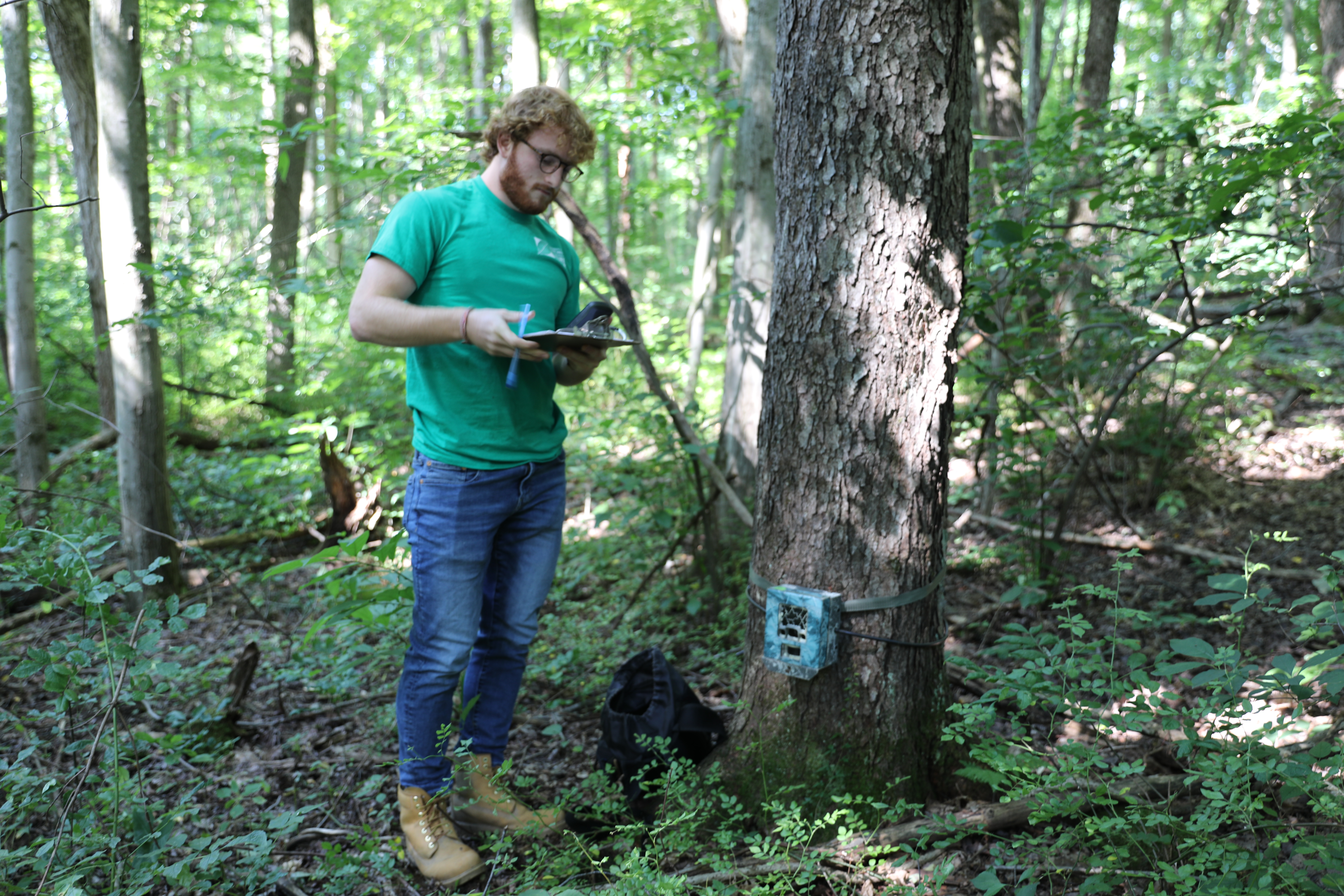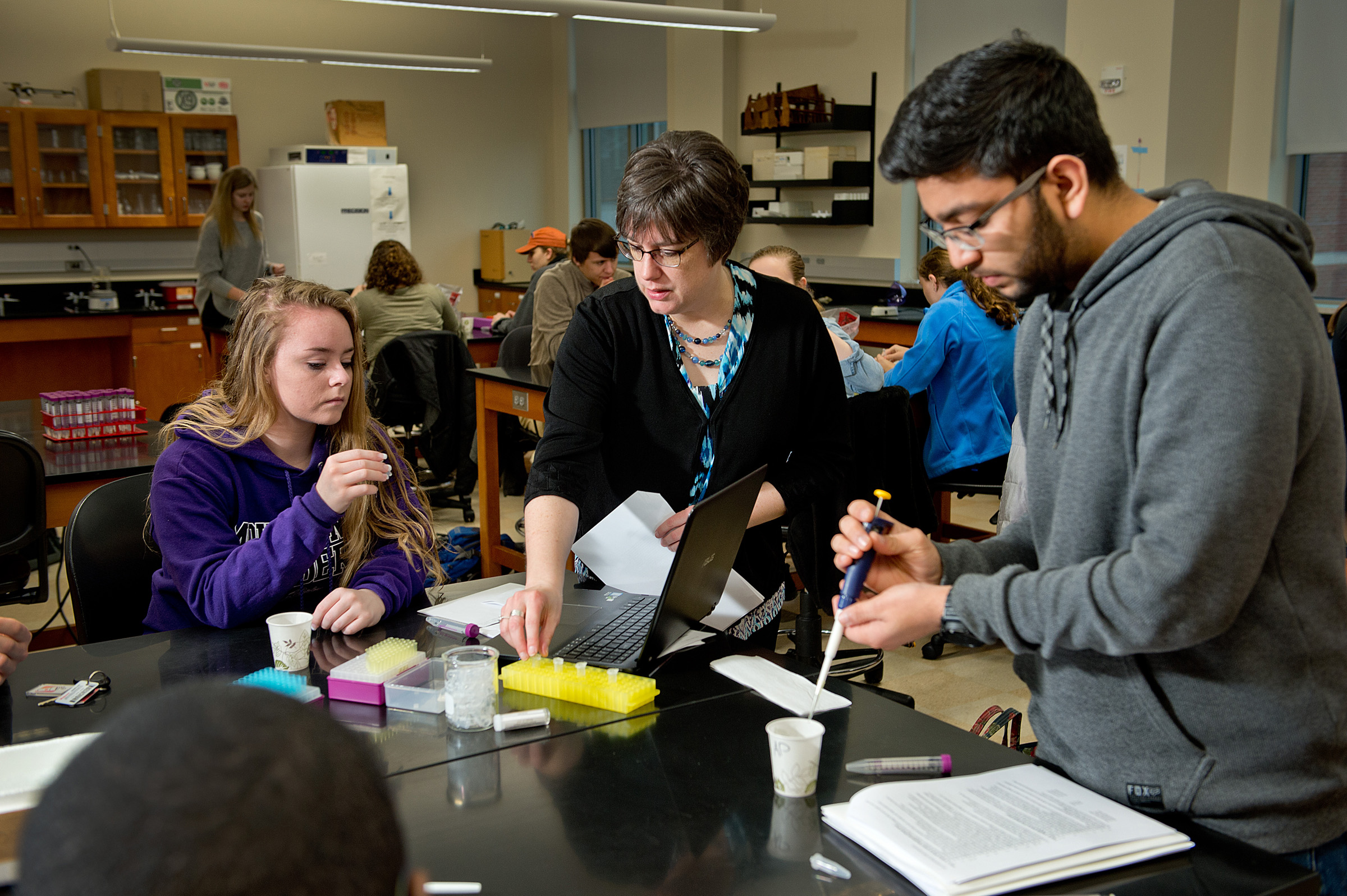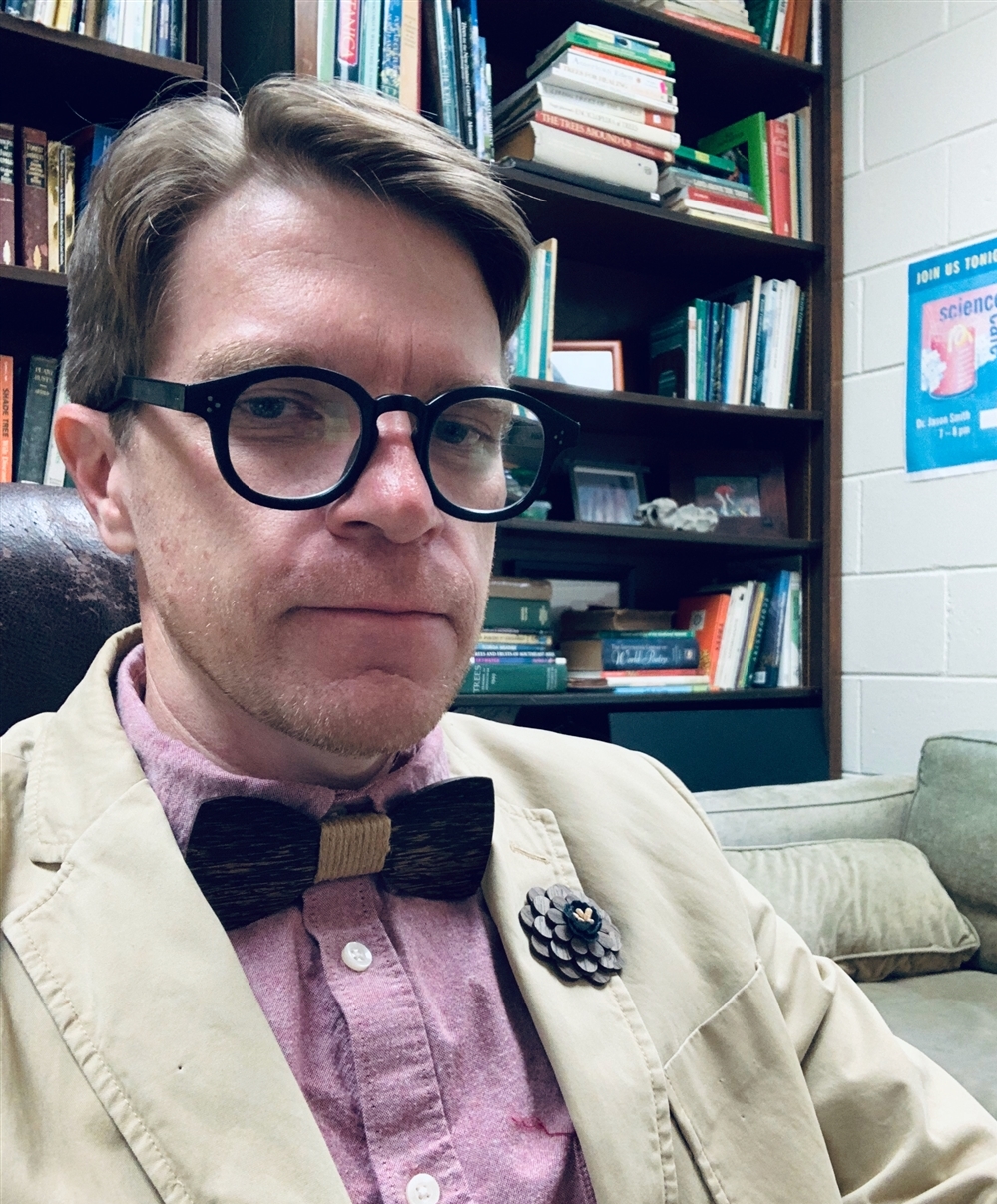Bachelor of Science in Biology Degree
Nourish your fascination with the living world in the Bachelor of Science (BS) in biology degree program at the University of Mount Union. As one of the best colleges for biology, Mount Union offers hands-on learning in labs, field environments, classrooms, and professional settings, providing a robust foundation in the Applied Bioscience or Biomedical concentration—two distinct paths that position you to thrive in your career.
Preparation for the Future
How, and why, do things live? Throughout the BS in biology program at Mount Union, examine established findings, join heated discussions, and design research projects that encompass many aspects of the biological world.
Building on the unity and diversity of life, genetics, and chemistry, select a concentration and immerse yourself in complex specialties, labs, and field research. As you approach graduation, you’ll complete a culminating research project, thesis, seminar, or internship where you apply what you’ve learned in real-world contexts. This experience prepares you for careers in biology, setting you up for success as you enter the workforce or apply for graduate and professional programs.
Biology Concentrations
Dig deep into topics and lab courses related to your career goals in one of two concentrations: Applied Bioscience or Biomedical. The Applied Bioscience concentration facilitates the study of other sciences, like physics and environmental science, as you prepare for professional research roles in fields related to biology. The biomedical concentration includes essential prerequisites for many graduate and professional medical programs.
Learn More About the Biology Major
Conduct outstanding research, prepare for professional medical programs, and form connections across the professional sphere in the Bachelor of Science in Biology program at Mount Union. Click the buttons below to learn more about our state-of-the-art labs and research equipment, commitment to experiential learning, and wide-reaching curriculum, and to take the next step and apply today.
-
Curriculum
Biology CurriculumMount Union’s diverse BS in Biology curriculum empowers you to explore a vast range of topics within biology. Throughout your studies, apply your knowledge in hands-on labs and internships, develop teamwork skills in collaborative field and research projects, and become a better communicator through presentations and opportunities to publish your research.
Learn more about what you’ll study—from genetics and chemistry to vertebrate zoology, microbiology, medical terminology, and ecotoxicology—in the undergraduate course catalog.
-
Experiential Learning and Student Organizations
Biology Experiential LearningDemonstrate your classroom learning in real-world contexts at every stage of the biology degree program. Here, you’ll embark on independent and team research projects with the supervision and guidance of esteemed faculty mentors. You’ll examine questions and collect data in laboratories and field studies. You’ll cultivate clear scientific communication skills for research conference presentations and publications. You’ll open doors for your next phase of life through internships and professional networking opportunities.
Huston-Brumbaugh Nature Center
In the Nature Center, you and your peers in biology and environmental science engage in field laboratories to study biological diversity, ecology, and hydrology. As a biology major, you can also apply for the Brumbaugh Scholars program, which supports summer student research and provides a forum for presenting your research findings to the public.
The Nature Center also offers numerous programs for local schools. We offer educational programs for students, staff, and the public nearly every weekend.
Clubs and Activities
Expand your experience and build professional networks among peers who share your passions.
Mount Union’s BS in Biology students are members of:
- Beta Beta Beta (national biology honor society) Xi Zeta Chapter, established at Mount Union in 2001
- Green Raiders (sustainability focus)
- Pre-Medical Professions Club
- Association of Pre-Physician Assistant Students (APPAS)
- Physical Therapy Pre-Professional Club
- Pre-Dental Club
Internships
In the bachelor’s in biology program, you can choose to complete an internship and establish crucial connections in the professional sphere, build on your in-classroom experience, and position yourself for success as you look toward launching your career or continuing your education in graduate school.
-
Careers
Biology CareersWhat jobs can you get with a biology degree? A BS in Biology can lay the groundwork for multiple career paths, from research scientist to pharmaceutical/biomedical sales representative and physician’s assistant to occupational therapist. Mount Union’s uniquely extensive hands-on training prepares you to excel in a variety of careers, and biology degree holders earn a median annual wage of $70,000.
Your concentration informs your most likely career path. If you study Applied Bioscience, you’ll likely enter the job market, apply for graduate school, or teach after graduation. The Biomedical concentration is designed for advanced studies in professional medical and health-related fields.
Alumni Employers- Research Technician at the University of Pittsburgh School of Medicine—Division of Infectious Diseases—HIV research
- Teaching 8th grade science, 9th grade science, high school science (AYAE/Life Sciences minor)
- Naturalist at Summit County MetroParks
- Study Supervisor at Charles River Laboratories
- Horticulture and Facility Coordinator at HBNC
- Clinical Trials Data Manager at Gabrail Cancer Center
- Quality Assurance microbiologist
- Data scientist at Nationwide Children’s Hospital
Common Careers- Researcher
- Healthcare provider (MD/DO, DDS, PA, etc.)
- Allied health
- Laboratory technician
- Quality assurance technician
- Science teacher
- Biomedical sales
Alumni Graduate Schools
- Medical school (various programs)
- Dental school at The Ohio State University
- Physician Assistant Studies (various programs)
- Accelerated BSN (Nursing) (various programs)
- Physical Therapy at University of Mount Union
- Medical Laboratory Science (post-bacc)
- Molecular Medicine Ph.D. program at Cleveland Clinic
- Cytotechnology program at Cleveland Clinic
- Biomedical Science Ph.D. program at Penn State
- MS in Tropical Marine Ecosystem Management at University of Miami
- MS in Animal Welfare Science, Ethics and Law program at University of Glasgow (Scotland)
-
Facilities and Equipment
Facilities and EquipmentJoin fellow biology majors using our innovative facilities and equipment in Bracy Hall and the newly constructed Gallaher Hall. These state-of-the-art tools and labs foster a uniquely rewarding academic experience where you gain essential practice for your next professional steps. Our facilities include:
- A herbarium with thousands of specimens of Ohio plants
- A geographic information systems lab with cutting-edge software, large format printers, and high-speed computers
- Portable photosynthesis equipment for precise measurement of carbon dioxide in the environment
- A flow injection analyzer for nutrient analysis of plants, soils, and water.
Research Opportunities
The undergraduate research component of our biology major is highly prized by employers and graduate programs alike. Here at Mount Union, you’ll design your own research questions and conduct entire projects according to your individual plans—and you’ll also collaborate with teams of students and faculty on larger-scale research, all of which can have real-world impacts.
From fluorescence microscopes and UV-Vis spectrophotometers to 96-well plate readers and gas analyzers, you’ll have the tools necessary to perform research in our:
- Tissue Culture lab
- Huston-Brumbaugh Nature Center
- Ball Research Forest
- Microscopy lab
- SEM lab
- Greenhouse
Faculty and Student Collaboration Spaces
Our student-faculty partnerships are key to the bachelor’s in biology program. Work alongside experienced researchers and distinguished experts in both biology and interdisciplinary research in our:
- Microbiology and Virology labs
- Developmental Biology and Molecular Genetics labs
- Physiology and Physiological Ecology labs
- Terrestrial and Aquatic Ecology labs
